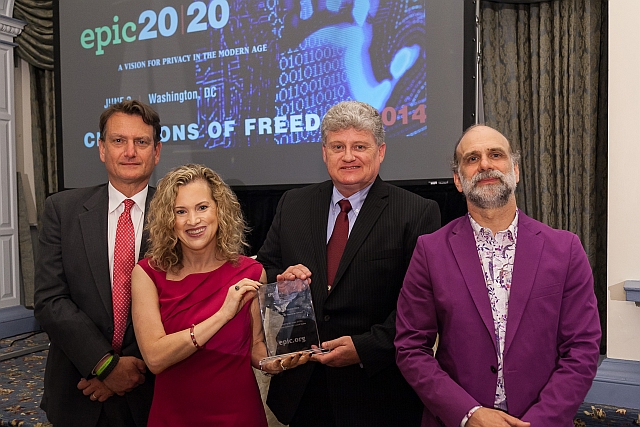San Francisco Police Illegally Spying on Protesters
Last summer, the San Francisco police illegally used surveillance cameras at the George Floyd protests. The EFF is suing the police:
This surveillance invaded the privacy of protesters, targeted people of color, and chills and deters participation and organizing for future protests. The SFPD also violated San Francisco’s new Surveillance Technology Ordinance. It prohibits city agencies like the SFPD from acquiring, borrowing, or using surveillance technology, without prior approval from the city’s Board of Supervisors, following an open process that includes public participation. Here, the SFPD went through no such process before spying on protesters with this network of surveillance cameras.
It’s feels like a pretty easy case. There’s a law, and the SF police didn’t follow it.
Tech billionaire Chris Larsen is on the side of the police. He thinks that the surveillance is a good thing, and wrote an op-ed defending it.
I wouldn’t be writing about this at all except that Chris is a board member of EPIC, and used his EPIC affiliation in the op-ed to bolster his own credentials. (Bizarrely, he linked to an EPIC page that directly contradicts his position.) In his op-ed, he mischaracterized the EFF’s actions and the facts of the lawsuit. It’s a mess.
The plaintiffs in the lawsuit wrote a good rebuttal to Larsen’s piece. And this week, EPIC published what is effectively its own rebuttal:
One of the fundamental principles that underlies EPIC’s work (and the work of many other groups) on surveillance oversight is that individuals should have the power to decide whether surveillance tools are used in their communities and to impose limits on their use. We have fought for years to shed light on the development, procurement, and deployment of such technologies and have worked to ensure that they are subject to independent oversight through hearings, legal challenges, petitions, and other public forums. The CCOPS model, which was developed by ACLU affiliates and other coalition partners in California and implemented through the San Francisco ordinance, is a powerful mechanism to enable public oversight of dangerous surveillance tools. The access, retention, and use policies put in place by the neighborhood business associations operating these networks provide necessary, but not sufficient, protections against abuse. Strict oversight is essential to promote both privacy and community safety, which includes freedom from arbitrary police action and the freedom to assemble.
So far, EPIC has not done anything about Larsen still being on its board. (Others have criticized them for keeping him on.) I don’t know if I have an opinion on this. Larsen has done good work on financial privacy regulations, which is a good thing. But he seems to be funding all these surveillance cameras in San Francisco, which is really bad.
